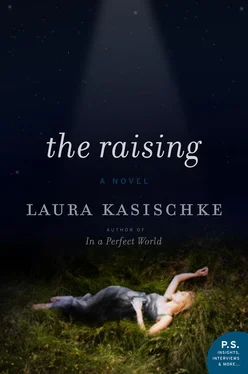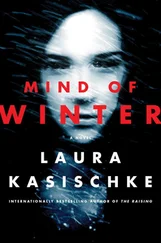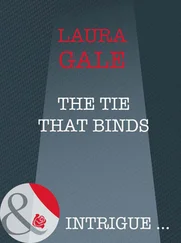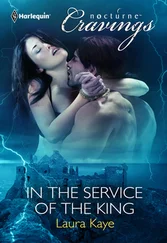She licked her bottom lip, and suddenly that familiar little tic (when she was nervous or upset or about to cry) seemed almost obscene to him.
Her cheeks looked flushed against the pasty stairwell walls, and her lips were very red. Craig thought he could smell her, too, even though she was standing several feet from him, and it wasn’t her usual baby powder smell, or the smell of her flowery shampoo. She smelled, he thought, like sex.
He looked down again at her hand rubbing the railing, and had to stop himself from grabbing the hand, making her stop.
“I went up there to tell you I’ve got to do laundry tonight. Josie and I are picking out dresses for the Spring Event.”
“But you knew I wasn’t there. You knew I was at the lecture I was assigned to attend.”
(Awful: An old professor who mumbled into a microphone for over an hour about the Post-Copernican Double Bind and the epistemological consequences of the Cartesian cogito — whatever the hell all that was. The undergraduates had started to file out at the same moment, like a timer had gone off or something in the middle of the lecture, and Craig had followed them, as the professor droned on. He’d hurried back to the dorm, imagining the poor guy still going on and on back there for the benefit of the two graduate students in the front row.)
“I just happened to be back early. You had no reason to think I’d be back in the room yet.”
“I’m sorry. I guess I don’t know your schedule well enough, Craig.”
“But this isn’t the first time.”
“You’re saying you think I’m—?”
Was he? Was that what he was saying? Did he really think she was—what? Fucking Perry? Was he really looking at Nicole and thinking to himself that there was even the remotest possibility that all this sweet virginity business, the promise ring she wore on her left hand—the amber ring, he noticed now, was not on her right hand tonight, but she said she had to take it off sometimes when she did a lot of typing—that it was all a joke? That not only wasn’t she a virgin, but she was screwing his roommate?
Perry?
He knew Perry wasn’t crazy about him, but they’d been getting along a lot better lately. Perry, the Boy Scout. Even if Nicole would do it, Perry wouldn’t.
Still, there was one thing Craig remembered from the lecture that night, and it bothered him at the moment, just as Nicole took a step toward him, and he could see that her eyes were filled with tears, and her blazingly red lips were trembling, and he knew that she was about to put her head on his shoulder, or press her face into his chest—something about Kant. How the human mind orders reality subjectively. The geezer had called it the “relative and unrooted nature of human knowledge.”
It was the only thing Craig had bothered to write down.
It was stuck now in his mind like a disturbing image, a catchy song.
But when Nicole lifted her tear-streaked face to his, he shook his head and took her in his arms.
For miles hers seemed to be the only vehicle on the freeway. Now and then a truck passed in the opposite direction, its wipers sloshing snow off the windshield with what looked like elaborate, sloppy showgirl boas and sweeps. Shelly imagined the drivers in those cabs. They would be hypnotized by the sound of their own wipers. They might be listening to talk shows, to the voices of strangers phoning in from other corners of the country, asking personal questions or expressing heartfelt convictions. Those truckers might be nearing sleep, or jangled up with caffeine and those energy pills they sold at the counters of gas stations. The snow seemed frenzied, suicidal, tossing itself into her path, but Shelly herself wasn’t lulled into any kind of sleep by the sound of the wipers.
She was more awake and alert than she had ever been in her life.
And although she realized that, really, she’d spent all of her adult years alone (or maybe every year of her life since her brother had died and her parents had fallen apart), this was the first night that she was acutely, completely, aware of how utterly alone she was.
She thought of Jeremy.
She thought of the James Joyce story.
The snow falling on the living and the dead.
There was no sense listening to the radio.
It was just more living and dying.
A few more miles, and she passed a truck jackknifed in the center median, surrounded by orange flares, and could see, heading toward it on the opposite side of the freeway, a police car’s flashing red and blue lights beyond the heavy veil of what now could only be described as a nearly total whiteout.
She should get off the freeway. If she could have stood to listen to the radio, she knew that was the advice she would have heard. She had just seen a sign for a Motel 6, a Cracker Barrel, a Quik Mart (Exit 49), and although she did not recall ever having pulled over on this particular exit, or being at this particular town (Brighton), she took comfort in knowing exactly what it would be like.
How many hundreds of Motel 6’s had she experienced in her life?
How many Cracker Barrels? Quik Marts?
Unlike many of her fellow academics, Shelly actually went to these places. She stayed in them. Ate in them. Purchased her snacks and beverages in them. She loved them for the very things for which her colleagues disdained them. Their kitschy sameness, and the way the girls at the cash registers always said something like, “Hi there! What’s up? Find everything okay?”
Shelly could pull off at this exit she’d never pulled off at before in her life, step out of her car blindfolded, and find her way to everything. The laminated menu. The check-in counter. The Slushy machine.
No. She wouldn’t pull over yet. Not at Exit 49. She would keep driving, and she did. Exit 49 blurred right past, and then Shelly realized where she’d wanted to go all along—and although she hated other people who scrolled through the addresses in their cell phones while driving in perilous conditions, she did it herself until she’d found Ellen Graham’s phone number, and then was hearing herself ask this poor woman, this nearly perfect stranger, if it would be okay if she stopped by (in the dark, in a blizzard) for the second time in a day.
“Are you okay, Perry?”
Perry nodded. Again, he had his hands against the fan, blowing its feeble attempt at heat on the dashboard of Jeff’s car. They should stop and buy him gloves, Mira thought, before leaving Bad Axe. There was a stillness to the air that made the snow seem even colder and more enveloping than it ordinarily would—and of course there was so little heat coming out of the vents that it seemed pointless to be idling in the funeral home parking lot, letting the car “warm up.” The car seemed only to grow colder as they sat in it, engine rumbling around them, interior lit up by the white electric Dientz Funeral Parlor sign, as if that pale light were lowering the temperature of everything it touched.
Still, Mira wasn’t ready to drive, and Perry had yet to speak since he’d said good-bye to Mr. Dientz.
When he’d first come back from the Werners’, he’d spoken so quickly, been so flushed and breathless, that he reminded Mira of the ranting “preacher” who sometimes stood on a bench on campus and shouted at the students as they passed. On every campus she’d ever studied or visited, there had been such a preacher. Always a cheap-looking suit, a good haircut, eyes so pale they seemed to be lacking irises. What this particular ranting man said usually made sense, sentence to sentence, but no sense at all when put together: Lightning was striking cell phone towers. The producers of television shows were trying to read our minds. People in gray coats were hard to see, and could sneak up on you.
Читать дальше












